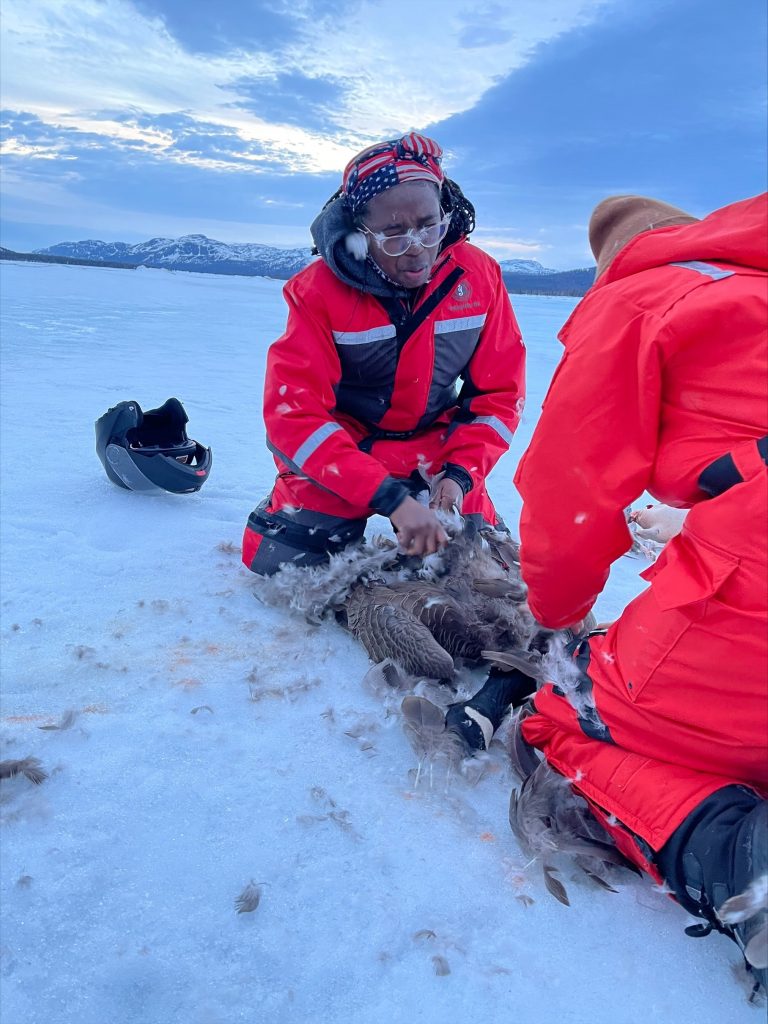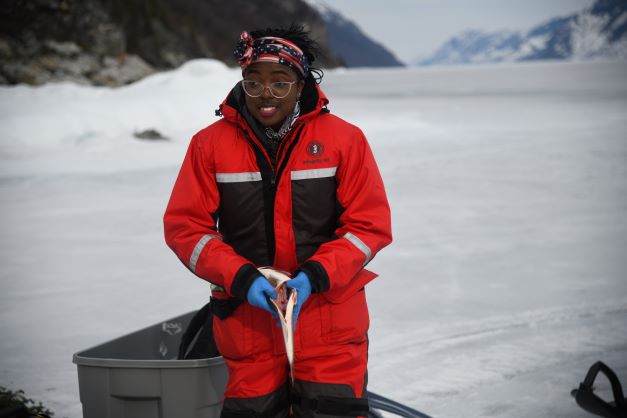
I have a natural liking for aquatic environments and hope to contribute substantially to the field
of fish conservation biology. I am particularly excited about unravelling existing ecological
interactions within aquatic ecosystems through the understanding provided by trophic
relationships and energy pathways that control the functioning and structuring of local food
webs. I have developed keen interest in understanding how fish communities in freshwater and
marine environments will respond to various anthropogenic stressors, such as invasive species, pollution, and climate change.
Following my passion and the desire to undertake higher studies to understand ecological
interactions within aquatic environments, I pursued a BSc degree in Natural Resources
Management, for which I majored in Fisheries and Watershed Management at Kwame
Nkrumah University of Science and Technology (KNUST), Kumasi, Ghana. I further pursued an
MSc. Degree in Biology at the University of Regina, Saskatchewan where I majored in Fish
Ecology.
For my undergraduate dissertation, I worked on identifying and characterizing the sexes and
species of two commercially relevant sub-Saharan African catfish species, Chrysichthys, in the Volta Lake, Ghana. This study was conducted to help prevent the hybridization or mixing of two morphologically identical species with potentially unequal performances under culture
conditions. My MSc research titled “Potential Impacts of Zebra Mussel Invasion on Gamefish
Health and Prey Availability in Prairie Lakes” aimed at quantitatively assessing the dietary
composition and important energy sources sustaining three highly valued gamefish species in
18 uninvaded prairie lakes across southcentral Saskatchewan to better protect and maintain
critical fish habitats against potential invasion of zebra and quagga mussels.
Currently, I am pursuing a Ph.D. in Environmental Science at Memorial University in
Newfoundland and Labrador as part of the Ocean Frontier Institute’s Sustainable Nunatsiavut
Futures program. I am co-supervised by Drs. Susan Ziegler, Ian Fleming, and David Côté. My
research focuses on understanding how Arctic char populations are using their diverse marine
environments (foraging locations) over the broad latitudinal gradient of Labrador. By
understanding the migration patterns, nutrition, and energetic status of char, we can better
predict their responses to future environmental changes, including climate change. This study
involves collaborations with Inuit Research Coordinators within the Sustainable Nunatsiavut
Futures (SNF) project, including researchers from the Department of Fisheries and Oceans
(DFO), the Torngat secretariat, the Nunatsiavut Government, the Nunatukavut Community
Council, and local experts/anglers. By dint of this approach, we can integrate indigenous
knowledge with a more in-depth assessment of fish’s energetic state and condition.
